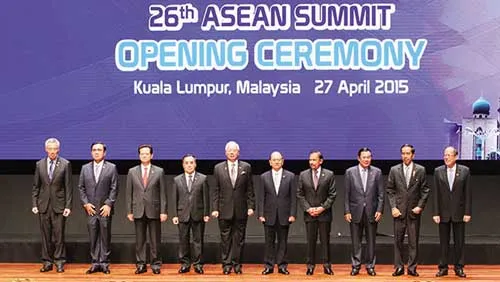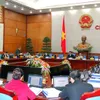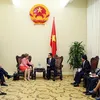ASEAN sets pace of global integration

Former Minister of Trade (now the Ministry of Industry and Trade) Truong Dinh Tuyen said that over the past two decades of relations with ASEAN, Vietnam had made huge strides in joining regional economic links, which had greatly helped the country strengthen its international economic integration.
“Vietnam’s entry into ASEAN in 1995 was a crucially political decision for its political and economic benefits. Joining ASEAN enabled Vietnam to negotiate and gain access to the World Trade Organization (WTO) for greater economic benefits,” Tuyen said.
As an example, he pointed out that when Vietnam revised its laws in 2006, in order to align with WTO standards before joining the organisation in 2007, many foreign investors grabbed this opportunity to pour money into Vietnam. Foreign direct investment (FDI) into the country soared from US$12 billion in 2006, to US$21.35 billion in 2007, and US$71.73 billion in 2008. FDI occupied nearly 22% of Vietnam’s total investment last year.
“Vietnam’s access to ASEAN has helped enhance its prestige and position globally. The access helped eradicate international isolation against the country. Without the access, Vietnam wouldn’t have been able to join international organisations and expand its external and economic relations as it has done,” said Nguyen Son, deputy director general of the Ministry of Industry and Trade’s Inter-agency Steering Committee for International Economic Integration.
He said that because Vietnam would join ASEAN on July 28, 1995, the US wanted to establish normalisation with Vietnam at an earlier date, doing so on July 11, 1995. “The US realised the importance of Vietnam’s ASEAN membership, through which it could further economic and investment relations with the whole ASEAN region more conveniently,” Son said.
Also commenting on Vietnam’s access to ASEAN, Deputy Minister of Foreign Affairs (MoFA) Le Hoai Trung said that Vietnam had been actively contributing to ASEAN development over the past 20 years. “Many sectors and localities in Vietnam have been co-implementing ASEAN shared activities. ASEAN’s increasing role and position has helped expand Vietnam’s foreign and economic integration policies,” he said.
However, according to Tuyen, it is difficult to accurately assess all impacts of international integration on Vietnam’s economic growth, because integration only helps create opportunities, and whether such opportunities are utilised effectively depends on Vietnam. “But it is clear that Vietnam’s ASEAN membership has laid a firm groundwork for Vietnam to further enter the world’s economy,” he stressed.
Vietnam has participated in 11 free trade agreements (FTAs) including one with ASEAN and six between ASEAN and its partners (China, India, the Republic of Korea, Japan, Australia and New Zealand), and four bilateral FTAs with Japan, Chile, the Republic of Korea and the Eurasian Economic Union.
Vietnam is also negotiating further FTAs, including the Regional Comprehensive Economic Partnership (RCEP), the Trans-Pacific Partnership Agreement (TPP), the Vietnam-EU FTA and the European Free Trade Association (EFTA).
According to the MoFA, the ASEAN Economic Community (AEC) is scheduled to be established on December 31, 2015. The community will greatly benefit Vietnam’s economy. “The AEC will bring big export opportunities to Vietnam via a shared market with a population of over 600 million people, and total gross domestic product of almost US$3 trillion,” said a MoFA document.
The document said that ASEAN is now the world’s seventh biggest economy, and is forecast to be ranked fourth globally by 2050. The AEC would be the rendezvous of many bilateral and regional FTAs and act as a crucial economic bridge towards the markets of China, the Republic of Korea, Japan, Australia, New Zealand and India via the FTAs between ASEAN and its partners.
At the recent 26th ASEAN Summit in Kuala Lumpur, Prime Minister Nguyen Tan Dung stressed that Vietnam would continue doing its best to achieve positive progress in boosting the construction of the community, while fine-tuning regulations at home to deliver on ASEAN commitments. Over 93% of the preparations for establishing the community have been completed, with Vietnam having already met more than 90% of its commitments.
Dung said what had to be completed for such an accomplishment was quite complicated, while time remained limited, “thus member states should highlight their responsibility, harmoniously combine their national interests with ASEAN shared interests, and further strengthen intra-ASEAN solidarity and unity.”
Tags:





